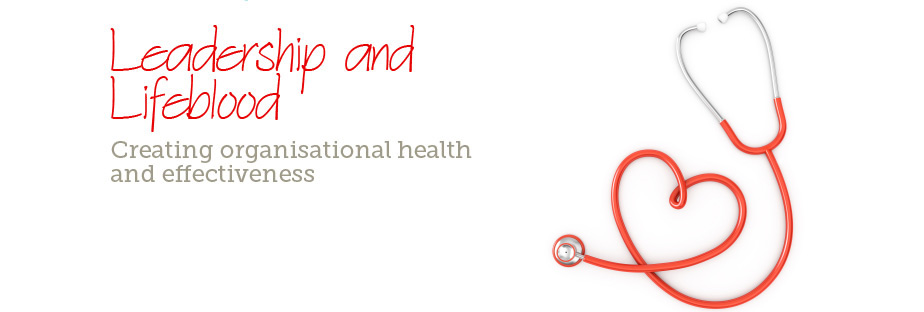Remain calm under pressure. During the 2012 Olympics there were a number of articles discussing how athletes remain calm and collected before their event, unemotional and detached despite all that is going on around them. This self-control over their emotions, whilst retaining a passion for what they do, places these athletes in the elite category when it comes to high performance, and winning Gold!
How do you deal with high pressure situations? Do you react rather than respond when your back is against the wall because something, or very often someone, does their worst to you…? How do outstanding leaders manage their emotions in any given situation.
For me the answer is simple. I do, because I have to, and any other response damages my standing and reputation more than any external situation would – and I don’t want to be the reason for my own downfall.
What I look for in a leader is a reliable, consistent, measured individual, who is calm in a storm, clear headed and very decisive in their response to events. What I see some people do is far too unpredictable and emotional to inspire confidence, and to compel others to follow their lead or direction.
Having the right temperament displayed at all times is a learnable skill. You will probably be able to react well in the ‘heat of the moment’; it’s the pressure cooker environment of an ever-building head of steam when it often becomes difficult to remain calm, or the layering of problem on top of issue on top of problem that makes you respond in an uncharacteristic yet very real outburst of emotion…
Be tolerant
Outstanding leaders require a high degree of tolerance. You are required to be tolerant of errors and mistakes and deal with them in a calm and measured manner. ‘Do your worst – bring out my best’ is a great reminder of the strength of character you need! A huge emotional reaction to any situation will win you no respect, and people within your team will start being more guarded towards you.
How you overcome problems is far more important than finding the person whose fault it was. You also have to be somewhat tolerant of every individual’s minor failings. Identify their weaknesses but don’t dwell on them. Support them as they improve. Play to an individual’s strengths; a person’s strong points are where an individual’s real value flows from.
Display intolerance
Outstanding leaders also require a high degree of intolerance. Never be tolerant of shortcomings within your business. Never tolerate the intolerable!
Do everything to improve an area you have identified as a weakness. Any team member whose actions or inaction holds back the progress of the company should be dealt with immediately, firmly and positively. Good business sense, not emotional response, should drive your level of intolerance.
Stand up for what you know is right. Do not lose your position of authority simply because you are afraid of using it as a position of strength; you should never feel under pressure but always recognise your ability to exert pressure. One of my personal weaknesses is that when I start to feel under pressure I tend to revert back to being less adventurous and take refuge in the safety of what I know. It is precisely these occasions which require the decisive action of a true leader.
Time out!
From time to time you will get well and truly ‘wound up’ by what happens at work. Something will be done, said or inferred, and you may not be in a position to challenge it! Your blood will be boiling and you will be firing the ‘whole damn department’ in your mind! Take a deep breath! It is essential that you keep control over your feelings at all times.
Let your temper slip and you will lose the respect of those around you for good – what use is a manager if he can’t manage his own emotions. Others will probably not understand why you are angry, and therefore in their eyes you are just acting irrationally. No one wants to work for a guy who may go over the edge!
I read recently about a training approach for younger children where they encourage them to think of themselves as being turtles. When their emotions start to drive their actions, some of which would be bad, they are to ‘draw themselves into their shells’ for just a few seconds, so that when they emerge they see the world from a different perspective. This is their first step to understanding their emotions, and controlling them. Although we do not have to use the same imagery, the principle is the same.
Take time to think about what made you angry. Is it really all that important an issue in the grand scheme? Is it stopping you doing your job? Will being angry improve anything? The answer is almost certainly ‘No’ to all these questions. So take a walk around, calm down, and decide upon what action you need to effectively resolve the problem! You should remain calm, assured and dignified at all times. Losing your self-control is never dignified. Being angry never impresses, it just makes the wrong impression and sends out the wrong signals! Display the assurance that you can manage yourself, before you try to manage others. ‘A man of knowledge uses words with restraint, and a man of understanding is even tempered’ (Proverbs)
Now it’s personal
We all accept that personal criticism is always hard to deal with, because it’s personal! As mayor of New York, Rudi Giuliani came in for his fair share of criticism. ‘Don’t let critics set your agenda – you will be working on others priorities’ he responded. He also has this advice about dealing with his harshest opponents ‘Standing up to bullies is not easy. The reason you should do it resolutely and early is so you don’t have to do it more than you should’.
It is particularly difficult to deal with criticism when it is inferred or if you hear it second hand. You have to decide whether to deal with it or ignore it. This really depends on whether it is damaging what you are trying to achieve on behalf of the business. People misguided enough to listen to untrue allegations say there is no smoke without fire – but some people make a fire to create a smokescreen. This is where your reputation and record counts – when people instantly give you the benefit of the doubt because they know you enough to trust you.







